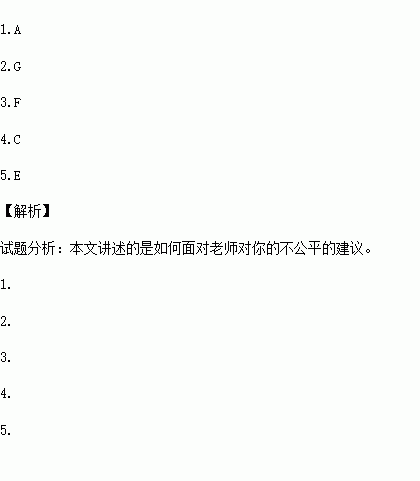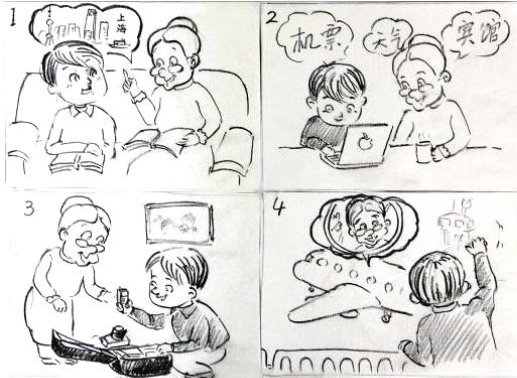题目内容
根据短文内容, 从短文后的选项中选出能填入空白处的最佳选项.选项中有两项为多余选项.
If you find that your teacher is unfair to you, think about what is happening. Try to find out whether your teacher really dislikes you, or whether something else is going on. Here are some questions to ask yourself:
1. Ask your classmates if they are having trouble with the teacher, too. If they say yes, perhaps your teacher is to blame.
Are you working up to your ability? Maybe you got a C in your last test, and your teacher told you that you could do better. And the kid sitting beside you got a C, too. 2. Isn’t this unfair? Well, it could be that your teacher knows that you could do better if you put more effort into it. 3. .
4. There’s nothing wrong with being sensitive (敏感的) ,but if you react to criticism quite differently from others, this could be a reason why you think your teacher doesn’t like you.
Does your teacher seem to act unfairly all the time, or just once in a while? Think about the harsh (苛刻的) things your teacher has done to you. Are these things happening every day, or just once or twice a month? If your teacher really hates you, you would probably be picked on all the time. 5. .
A. Are you the only person being treated badly, or is your teacher rough on the whole class?
B. Are you getting along well with your classmates?
C. Are you more sensitive than other students?
D. Are you interested in your lessons?
E. If your teacher has acted unfairly only a few times, then there’s probably something else going on.
F. Teachers often grade students by different standards.
G. But the teacher didn’t say anything to him!


